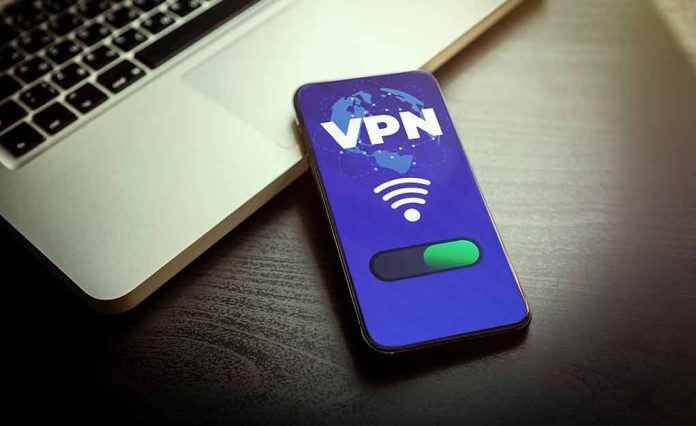
Russia plans to invest $600 million to dramatically expand its internet censorship, blocking VPNs, monitoring Telegram, and countering deepfake threats.
At a Glance
- Russia will allocate $660 million to bolster its Internet censorship mechanisms.
- VPN services will be specifically targeted for stricter blocking measures.
- The government’s concern includes monitoring Telegram for military communications.
- Deepfake technologies are seen as serious threats to state security.
Russia’s Significant Investment in Internet Censorship
Russia’s Ministry of Digital Development has announced plans to invest nearly 60 billion roubles ($660 million) to enhance its TSPU internet censorship system over the next five years. This initiative represents the most significant expansion of digital censorship seen in Russia, aiming to control and prevent access to information deemed illegal or harmful by the state. Both national security and maintaining public confidence are key motivators behind this investment.
https://www.yahoo.com/news/russia-spend-660-million-strengthen-102243852.html
These efforts underscore a broader government project, largely driven by geopolitical tensions and the desire to curtail Western influence. Part of this new development includes an upgraded Automated Security System (ASBI) which will significantly enhance TSPU’s bandwidth to 725.6 Tbps, improving efficiency in blocking VPN services often used to bypass governmental censorship restrictions.
🕵️🇷🇺Here's what you should know about the fresh #KremlinLeaks: how the Kremlin is pre-rigging Putin's reelection and directly funding propaganda and internet censorship – or so-called "information war" against its own citizens in Russia and the population in Ukraine's occupied… pic.twitter.com/A3RnMzvbDy
— Szabolcs Panyi (@panyiszabolcs) February 26, 2024
Montoring Telegram and Addressing Deepfake Threats
The Kremlin is also intensifying its focus on Telegram, a platform critical for Russian military communications. The monitoring goal extends beyond merely curbing unauthorized media to actively intercepting unvetted military information that might reveal deficiencies or undermine public confidence. Additionally, the government is wary of the deepfake threat as these advanced fake videos could spread disinformation, disrupting the public perception and state security.
“Mazay Banzaev, who operates a popular Amnezia VPN service, expressed confidence in a Forbes interview that software developers will continue to innovate ways to bypass government restrictions, regardless of how much the Russian government invests in its censorship systems.”
Over the past years, the TSPU system has been formalized through laws that compel ISPs to install government-supplied equipment to ensure digital security and stability. Currently, more than 6,000 TSPU devices have been installed across Russia. The new plans from 2025-2030 aim to upgrade existing systems, install new devices, acquire advanced hardware and software, and enhance system capabilities to counteract VPNs and other circumvention tools.
Broader Implications and Ongoing Struggle
This $660 million initiative is not just an isolated infrastructure expansion but part of a broader ‘Cybersecurity Infrastructure’ project. The allocation is far more significant than Roskomnadzor’s entire 2023 budget, underscoring how essential expanding censorship is in the Kremlin’s strategy. Additional projects include creating a unified anti-fraud platform and a system to block phishing websites. Critics argue that these measures are a substantial threat to free speech, while the Kremlin justifies it as critical for national security.
Digital rights activists caution that despite the considerable investment in censorship technologies, it is improbable to eliminate access to independent information. Software developers remain committed to innovating against state-imposed restrictions, ensuring the ongoing battle between government control and free access to information remains active, with both sides continuing to advance their tactics.







